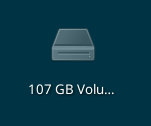It needs to become more minimal. What I mean by that…
Yeah, that sed has been removed. Obsolete anyway.
sed -i "s|http|https|g" /etc/apt/sources.list.d/debian.sources &&
This one is necessary to implement trixie sources for dnscrypt-proxy. It’s been omitted from bookworm. (But if you don’t want dnscrypt-proxy this can be removed as well)
sed -i '0,/bookworm/ s/bookworm/bookworm trixie/' /etc/apt/sources.list.d/debian.sources
Removable now thanks to systemd usage?
Sure, can be removed. I read something about docker unionfs VOLUME > --volume and /var/cache with double instructions being helpful, but that’s probably nonsense anyway.
Could you reduce please to the same packages as listed here? Host Preparation Steps
Yeah, will do.
Plus of course any packages absolutely required by docker.
Any packages you think are missing, should either be added to the wiki or preferably to derivative-maker.
Plus of course any packages absolutely required by docker.
Ok sure, that makes sense. Couple packages can also be scrapped bc of reverse dependency.
Absolutely crucial for docker:
- systemd:
dbus dbus-user-session
Convenient to be installed/initialized before/with entrypoint:
- user:
adduser
- apt-cacher:
apt-cacher-ng
- dnscrypt:
ca-certificates dnscrypt-proxy
- if onion:
tor
Whenever:
- residual:
apt-utils procps gpg gpg-agent debian-keyring torsocks apt-transport-tor …etc
Most likely obsolete
- dmsetup: (my
lo_check nonsense - which you obviously don’t want lol)
Haven’t tested your kpartx commit yet, but it’s probably gonna work anyway.
Rationale: I want to keep the delta (difference) between docker and non-docker as small as possible for simplicity. So any improvements should be upstreamed to derivative-maker generally (unspecific to docker).
Yeah, makes sense. As raw as humanly possible at the docker level, got it. 
DNS related changes should not be done without defining the way forward for the upstream ticket: Use DNSCrypt by default in Kicksecure? (not Whonix!)
(related wiki page: DNS Security)
Your position was that dnscrypt should be scrapped due to non-selfvalidating dnssec. For Kicksecure I think it’s still pretty nice, though.
I personally like having a tail of the query.log and iftop running during a build, it just feels nice. Is it really necessary? Probably, not. It sounds cool in a readme and I like the flare, but in terms of actual functionality or privacy it’s meh. I’ll accept your judgement in that regard.
I don’t understand why that would be needed.

This can save a bit. It’s all in the same RUN, i.e layer, thus will take effect. (as far as I know)
/var/lib/apt/lists/* /var/cache/apt/*
Preemptive. For potential builds I always choose WORKDIR /tmp, but can be scrapped, sure.
/tmp/*
Honestly, that’s a copy/paste. Never checked, but I’ll figure out which ones are reasonable.
||rm -f /lib/systemd/system/multi-user.target.wants/* && \|
||rm -f /etc/systemd/system/*.wants/* && \|
||rm -f /lib/systemd/system/local-fs.target.wants/* && \|
||rm -f /lib/systemd/system/sockets.target.wants/*udev* && \|
||rm -f /lib/systemd/system/sockets.target.wants/*initctl* && \|
||rm -f /lib/systemd/system/basic.target.wants/* && \|
||rm -f /lib/systemd/system/anaconda.target.wants/* && \|
||rm -f /lib/systemd/system/plymouth* && \|
||rm -f /lib/systemd/system/systemd-update-utmp*|
